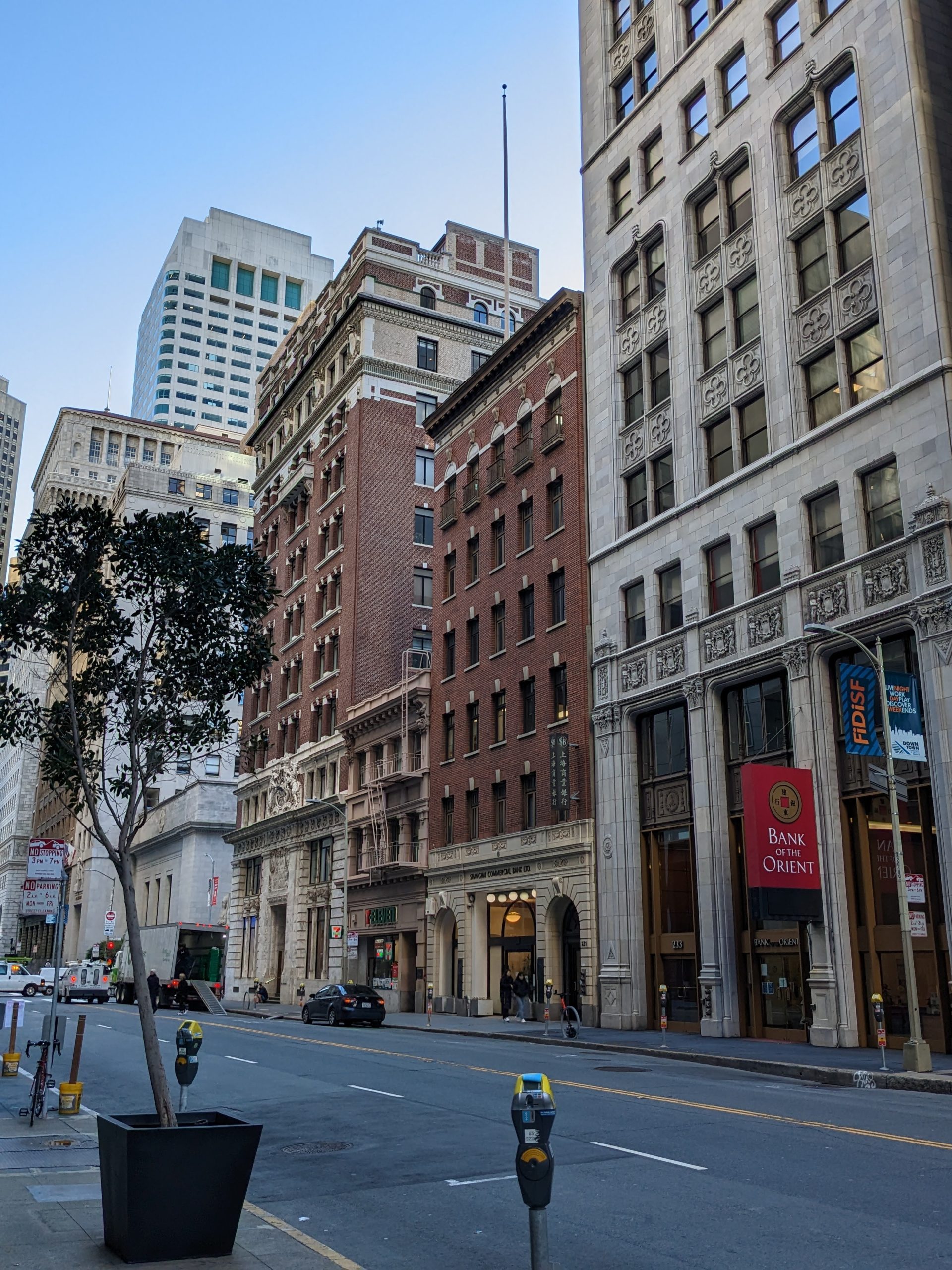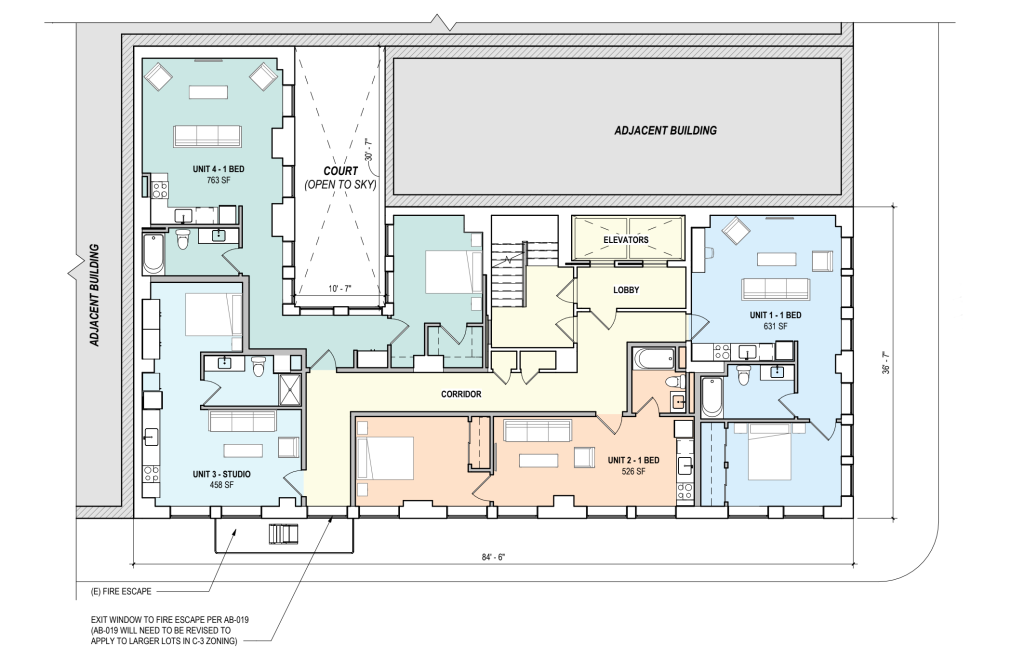THINKING: housing projects
Office-to-Residential Conversions Just Got Easier in Downtown San Francisco

In the first quarter of this year, San Francisco’s office vacancies hit a staggering 29.5%. This surpasses the previous record of 19.1% set during the dot-com bust in 2003. Covid-induced office vacancies now appear to be permanent as downtown has yet to recover fully from the widespread shift to remote work. The current situation presents an opportunity via office-to-residential Conversions to explore the possibility of repurposing a portion of downtown’s buildings for housing, taking advantage of the vacant office spaces. We’ve previously covered how Class C buildings are ideal for these conversions, and now the City of San Francisco is making these conversions easier with code modifications.
San Francisco’s apartment rental rates remain extremely high due to decades of underbuilding housing. As part of the Residential Housing Needs Allocation process, the City is currently undergoing rezoning efforts to accommodate over 80,000 new housing units. Utilizing office-to-residential conversions, adding residential units downtown could play a significant role in addressing the housing needs and contribute to the solution. Moving more residents into the Financial District and surrounding areas will help turn these places into 24-hour neighborhoods, supporting public transit and retail businesses that have been hurt by the transition to remote work.
It’s not easy making office to residential projects pencil out. Several factors impact the financial viability of office-to-residential conversion including:
- City fees (permit fees, impact fees and affordable housing mandates)
- Transfer and property taxes
- High construction costs – especially in buildings that require seismic retrofits
- Soft costs related to entitlement risk
OpenScope Principal Mark Hogan worked with Board of Supervisors President Aaron Peskin and his staff on proposed code changes via a small working group that involved downtown stakeholders and city staff, including Mayor London Breed’s Office. This led to a joint piece of legislation sponsored by both Peskin and Breed. These changes were written with the goal of increasing the feasibility of these office-to-residential conversions by reducing the pain points in the permitting process.
In May, the Planning Commission granted unanimous approval to this package of reforms. It was subsequently approved by the Board of Supervisors in June and signed by the Mayor on July 5th, 2023. This legislation encompasses strategies to address vacant spaces throughout the Downtown and Union Square areas, focusing on two critical aspects. Firstly, it amends the City’s Planning and Building Codes, streamlining the approval process and requirements for transforming existing office buildings into housing. Secondly, it eliminates restrictions to encourage a wider range of businesses and activities, fostering a more vibrant and dynamic atmosphere in Union Square and throughout downtown San Francisco. This new legislation will take effect on July 30th.
Office to Residential Code Changes
While Downtown zoning already permits housing and has no parking requirements, the legislation takes significant strides in reducing barriers through code adjustments that might impede the conversion of underutilized office buildings into residential units.

The legislation modifies portions of the Planning Code that previously would have needed to be approved on a case by case basis, providing assurance earlier in the process that a conversion can move forward. These changes include:
- Relaxation of Rear Yard requirements
- Modification and reduction of the Dwelling Unit Exposure requirements (typically, every unit has to face a compliant rear yard or 25’ square open space)
- Removal of dwelling unit mix requirements
- Removal of requirements to upgrade streetscape elements
- Streamlining some types of preservation review
- Permitting live-work units Downtown (which had been banned following the Dot Com boom)
- Allowing a number of uses previously not principally permitted in downtown commercial zoning
- Allowing for payment of an in-lieu fee if open space is not provided on site
- Facilitate residential adaptive reuse by amending the Building Code to add standards for adaptive reuse of nonresidential buildings
- Flexible workspace will be added as a defined use in the Planning Code and will be allowed as an active ground floor use
This legislation as well as the Request for Interest – Adaptive Reuse of Downtown Commercial Buildings are key components of Mayor Breed’s Roadmap to Downtown San Francisco’s Future, representing her vision for the future of Downtown in response to the economic changes brought on by the pandemic.
“San Francisco’s downtown commercial buildings vary widely by age, size, and configuration. The Financial District north and south of Market Street includes two-thirds of San Francisco’s overall office space, with much of it clustered in larger, taller towers built since the 1960s, said Anne Taupier, Director of Joint Development at the Office of Economic and Workforce Development. “However, these downtown neighborhoods also include several designated historic districts and hundreds of smaller Class B and Class C office buildings built before World War II. The City seeks responses through this RFI that address the unique challenges to adapting each of these different building types, and different approaches that may make the reuse of these buildings more practical and financially feasible.”
If you have any questions regarding office-to-residential conversions and new legislative changes or if you are considering a specific project and wish to explore the feasibility of a conversion, feel free to contact us at: info@openscopestudio.com.